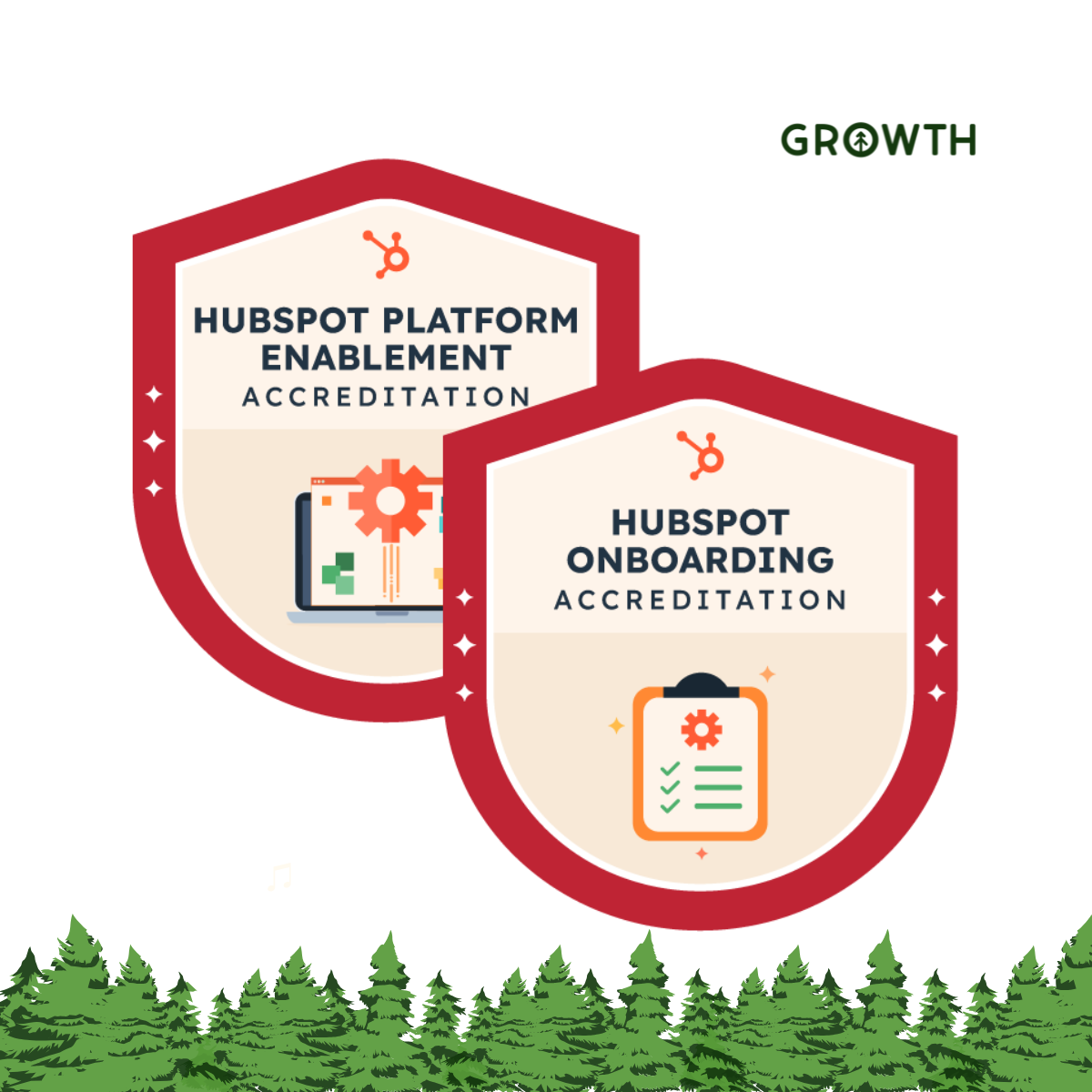Creating a Culture for Company Growth
On this page
Company culture is the shared attitudes, goals, and values of an organization. It starts with leadership, but it impacts every aspect of the business: from the way internal meetings are run to the way customers are found and served, to the way new team members are recruited and hired.
We talk about the culture of our companies in terms of how rules and processes are set up to get things done, and, historically, we’ve been too proud to call our company cultures “performative.”
But, how does a culture maintain a cushy space for people to grow and, thus, for companies to grow?

In a performance-based company culture, everything depends on either winning or losing no matter what, and there’s not a lot of room for the human aspect of work—which is always a little messy and complicated.
Unless company leaders are robots, they are NOT:
- constantly energized
- eternally hopeful
- 110% successful
- efficient 24/7
- happy every day
When leadership projects this untruth, it inspires teams to expect the same of themselves, and that’s too much pressure for anyone.
And lies that project perfection will always be exposed anyway because perfection is literally unsustainable.
People burn out. Leaders exhaust themselves and take their frustrations out on their teams.
Basing the entire culture of a company on its performance—on the strict binary of winning or losing—is like pouring acid on your petri dish.
Nothing can grow in a culture like that.

When a leader has a growth mindset and builds a culture around the truth that progress is more valuable than perfection, teams can:
- hone their ability to think creatively and critically,
- understand and swipe blind spots, and
- take ownership of their work and the business itself.
Leaders who project vulnerability by acknowledging insecurities and shortcomings (rather than unconsciously acting them out) inspire teams to do the same.

As a result, people in cultures like this spend more energy creating long-term value and less time defending their humanity.
How much people know and how many things they've perfected is less important than how people feel and make others feel.
That’s the biology of it.
So, how do you culture for growth?
Building a growth culture requires a combination of individual and organizational pieces.
Deliberating creating a growth culture in your business requires:
- A safe environment: Leaders show their personal and professional vulnerabilities and own their faults and mistakes first before blaming others.
- People are always improving: Leaders inspire curiosity, transparency, and continuous learning and reject notions of judgment, certainty, and self-protection.
- Honest, constructive feedback: Leaders model steady, honest feedback that is grounded in a company-wide commitment to helping each other grow and improve.
- Consistent change: Short, easy experiments with new ways of doing things reminds everyone that change can be productive and safe.
Culture Comes From the Top
Leadership has the biggest influence on company culture, and if you’re not leading the creation of a growth culture in your business, it’s being shaped FOR you—and in a way you may not want.
Be conscious of your leadership style, and stick to it in everything you do.
Acting, speaking, and (most of all) thinking consistently in alignment with the culture you want to build is foundational to trust which creates strength even through tough situations.
Curiosity over Competition
Competitive environments can challenge team members to bring their best and strive for better results. Too much competition can create fear, resentment, and anxiety.
And nothing crushes your soul more. If it can crush a person's soul, it will crush your teams—which will crush business.
Asking questions—staying curious—leads to innovation which leads to growth.
When you allow your teams to ask, to show, and to be innovative and bold—and you’re willing to do the same—your company culture flourishes over the long haul.
Clear Feedback on a Consistent Basis
Transparent communication helps team members understand opportunities for growth and can build confidence and trust.
For leaders who are interested in building a safe company culture that retains great teams, communicating in an open, honest way is key.
When team members feel like the people in their company can be counted on to tell the full truth (positive AND negative truth), they’re happier and more productive.
Change Management
How individuals and teams respond to change says a lot about the state of the company.
For companies looking to scale, adaptability among teams is crucial, but teams can’t adapt when they’re afraid. When people can adapt and are versatile in their work and ways of working, positive change within the company that promotes growth is more possible.
Individuals who can adapt have a positive attitude that inspires others and the environment. Leaders who inspire positive change and model adaptability do the same for their companies.
To Challenge or to Nurture? Both.
A growth culture requires a delicate balance between challenging and nurturing others and yourself. This can be difficult when we’re taught that business leaders should be withdrawn, tough, and ruthless.
Historically, performance-driven company cultures inspired fear by creating a zero-sum game in which people are either “winners” or “losers.”
But, business leaders are realizing that building a strong business culture that inspires trust, respect, and dignity in workers and clients truly flourishes over time.
Building a culture like that takes into account our biology as a growth culture: people feel like winners more often (and get a lot done) when they are challenged and nurtured in equal measure.

Growth leaders realize that just because humans (and leaders are human, too) have off days or make big mistakes doesn’t mean they’re “losers;” it means they’re human.
A big helping of empathy, compassion, and mutual respect every day goes further toward a healthy company culture than intimidation, fear, and judgment ever could.
We’re culturing and cultivating growth at Growth every day, and we can help you do the same in your business. Contact us to catch this spirit of service we have spinning around.
Explore More Insights: Related Blog Posts
-
 Team BuildingOct 14, 2021
Team BuildingOct 14, 2021 Growth Marketing Firm
Growth Marketing FirmThe Growth Mindset
Thirty years ago, psychologist and Stanford University professor, Dr. Carol Dweck coined the term “growth...
-
 Growth NewsOct 12, 2022
Growth NewsOct 12, 2022 Growth Marketing Firm
Growth Marketing FirmAs Growth Turns 5, We're Celebrating Our Customers
Growth is 5 this month, and nothing says "5" like a big high one to our team, our new service, and...
-
 Apr 1, 2024
Apr 1, 2024 Growth News
Growth NewsGrowth Welcomes Agile Digital Marketing: A Strategic Acquisition to Drive Further Success
We're thrilled to announce that Growth has officially acquired Agile Digital Marketing, which marks a...
-
 HubSpotJan 12, 2022
HubSpotJan 12, 2022 Growth Marketing Firm
Growth Marketing FirmGrowth: a HubSpot Platinum Solutions Partner + What That Means for YOU
It’s only been a minute since we achieved our HubSpot Gold Solutions Partner status, but Growth is beyond...
-
 LeadershipFeb 28, 2025Rick Barcellos
LeadershipFeb 28, 2025Rick BarcellosGrowth Welcomes Nick Cull as Our New COO
We’re excited to welcome Nick Cull as Growth’s new Chief Operating Officer (COO)!
-
 HubSpotFeb 26, 2025Rick Barcellos
HubSpotFeb 26, 2025Rick BarcellosGrowth Earns Two HubSpot Accreditations
We’re excited to announce that Growth has officially earned two HubSpot Accreditations: ✅ Onboarding...
-
 HubSpotDec 20, 2022
HubSpotDec 20, 2022 Growth Marketing Firm
Growth Marketing FirmGrowth Levels Up to HubSpot Diamond Solutions Partner
Growth is beyond excited to announce that we are now a HubSpot Diamond Solutions Partner! What does that mean...
-
 Inbound MarketingJan 17, 2023
Inbound MarketingJan 17, 2023 Growth Marketing Firm
Growth Marketing FirmGrowth's HubSpot Marketing Hub ROI Calculator is Live!
Growth is excited to announce our new free resource: the HubSpot ROI calculator!
-
 HubSpotApr 3, 2024
HubSpotApr 3, 2024 Growth News
Growth NewsEmbracing Evolution: HubSpot Unveils AI-Powered Content Hub
In the dynamic realm of content marketing, staying ahead means embracing evolution. Today marks a significant...

